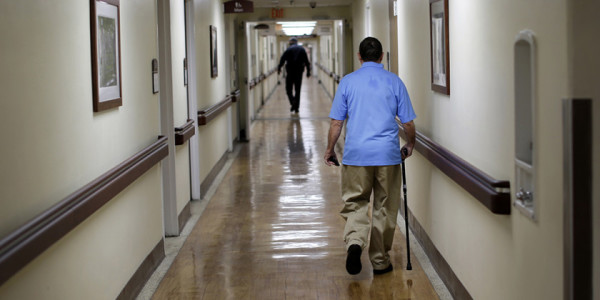

To our country’s credit, we now recognize the service and sacrifice of caregivers who bear the burden of helping severely wounded veterans find some semblance of quality of life. The passage of the Caregivers and Veterans Omnibus Health Services Act of 2010 allowed the Department of Veterans Affairs to extend services to caregivers of veterans who served during the post-9/11 era. Specifically, these services included a monthly stipend to ease the economic burden, access to healthcare, a support network, and respite care for the caregivers of veterans.
Caregivers who were eligible for the program no longer face the burden alone or have to sacrifice their own well-being as they tend to the needs to their loved ones. After all, the accrued, hidden cost of war is often paid behind closed doors, in the homes of those families who deal with the everyday lifelong realities of catastrophic injury, both mental and physical.
This is precisely why it is unconscionable to continue to deny this same support to millions of caregivers of pre-9/11-era veterans, of which an estimated 440,000 spend more than 40 hours a week caring for a veteran, according to a 2014 RAND study. Bullets, bombs, and the mental effects of combat respect no chronological boundaries; nor should support for those who deal with the aftereffects with little or no support.
In a growing number of cases, caregivers are reaching advanced age and cannot properly carry on the burden, yet must because relief for them, through expansion of the caregiver program, remains mired in discussions at VA Central Office and on Capitol Hill on how to fix the program’s increasingly problematic implementation and pay for its expansion.
For post-9/11 caregivers already on the program, particularly those who were removed from the program or face losing benefits because their care recipient’s medical condition has purportedly “improved,” according to VA, inconsistent practices and arbitrary standards have led to calls from post-9/11 advocates to halt talks on expansion until the problems are fixed. However, such a move disregards the needs of those caregivers who have already gone far too long without support. The VA did not stop accepting new disability claims while trying to reduce the backlog. Nor did VA stop accepting new appointments while trying to eliminate its waitlist. Similarly, making caregivers wait for support until the wrinkles are completely pulled out of the existing program— which may never happen — is not a viable option if we truly value the service and sacrifice of military caregivers.
It should not matter whether a caregiver is helping a veteran who left a piece of him or herself in the mountains of Afghanistan or jungles of Vietnam. Now that our country has set a standard for what caring for caregivers entails, it’s time to ensure that no caregiver is left to deal with the invisible costs of war alone.
